In pictures: India's gun-violence widows
- Published
Campaigners in the north-eastern Indian state of Manipur have been demanding that authorities withdraw a controversial anti-insurgent law which gives the security forces the powers of search and seizure.
The region near the Burmese border is home to many militant groups and has seen decades of separatist violence. But rights groups accuse the security forces of using the immunity given by The Armed Forces Special Powers Act (AFSPA) to indulge in "fake encounters" or illegal extrajudicial killings.
Photographer Karen Dias has been meeting the families of those killed and documenting their stories.
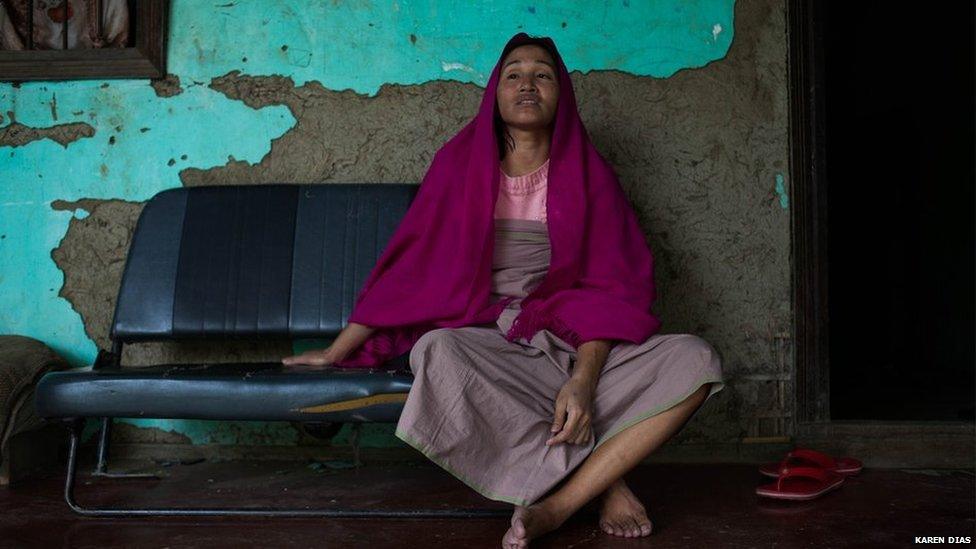
Gangarani Kongkhang's husband Deban Kongkhang was killed after bullets were fired into his van allegedly by the Thoubal district police commandos at Patpan Lamkhai in Manipur's capital, Imphal. The government promised to punish the perpetrators and give her a government job and financial compensation, but six years later she has received nothing. Ms Kongkhang, 38, is visually impaired and lives on handouts and takes care of her two children aged seven and 12.
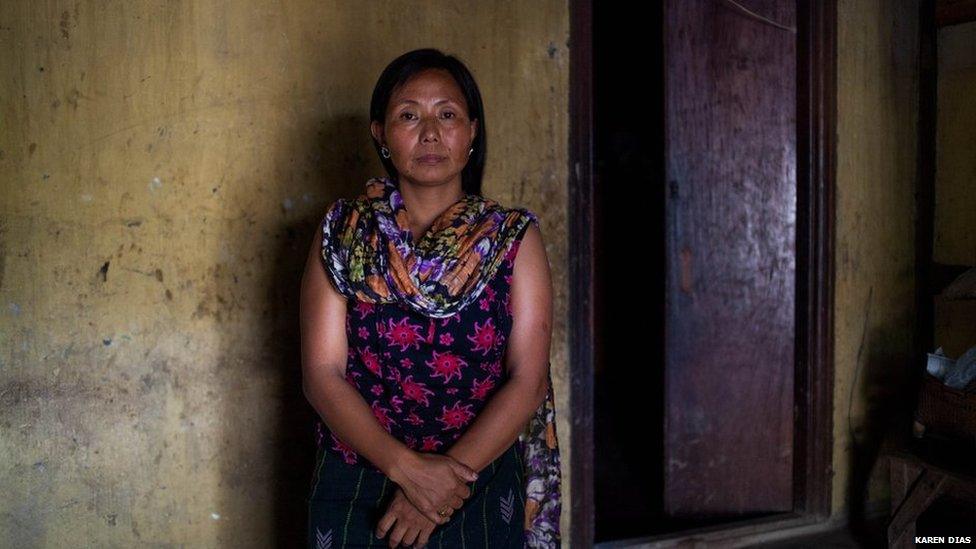
Wangkhem Chandrakala's husband, Namoijan Lukhoi, was shot dead by two unidentified men outside their home on 21 April 2008. She lodged a police complaint but later gave up the case because she feared "repercussions" and worried about the safety of her four school-going children. "Soon after my husband's death, I went into depression and began to lose my senses. I would wander off and find myself in the fields or in the crematorium. My family members and neighbours had to keep an eye on me," she said.
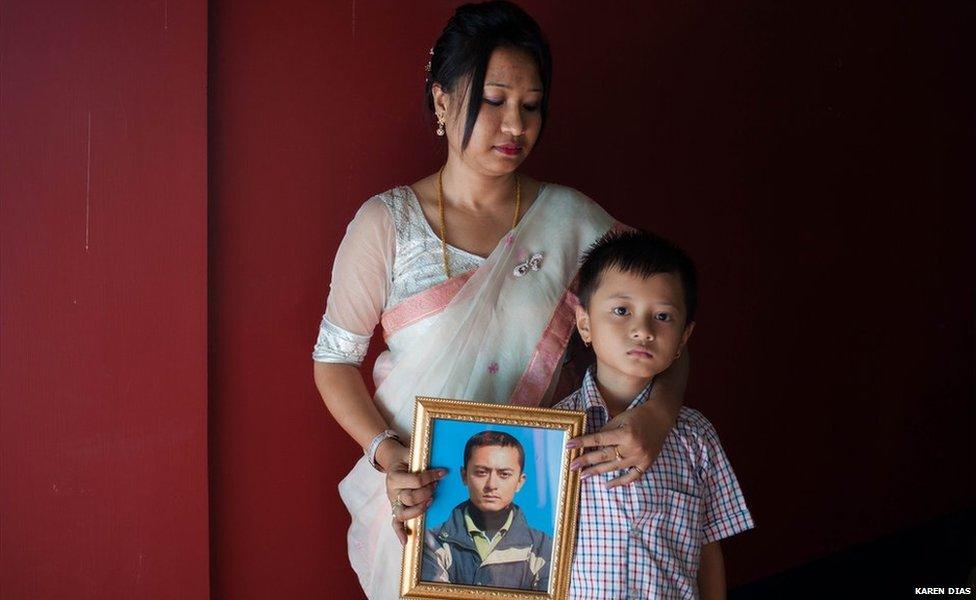
Roni lost her husband Mutum Herojit on 13 October 2008. She found out about his death while watching news on TV. "I want justice for my husband. No other woman's husband should die in the future. I want to tell the government that this killing should stop or else Manipur will become a state of widows," she says. Here, she is photographed with her nine-year-old son, Mutum Mir.
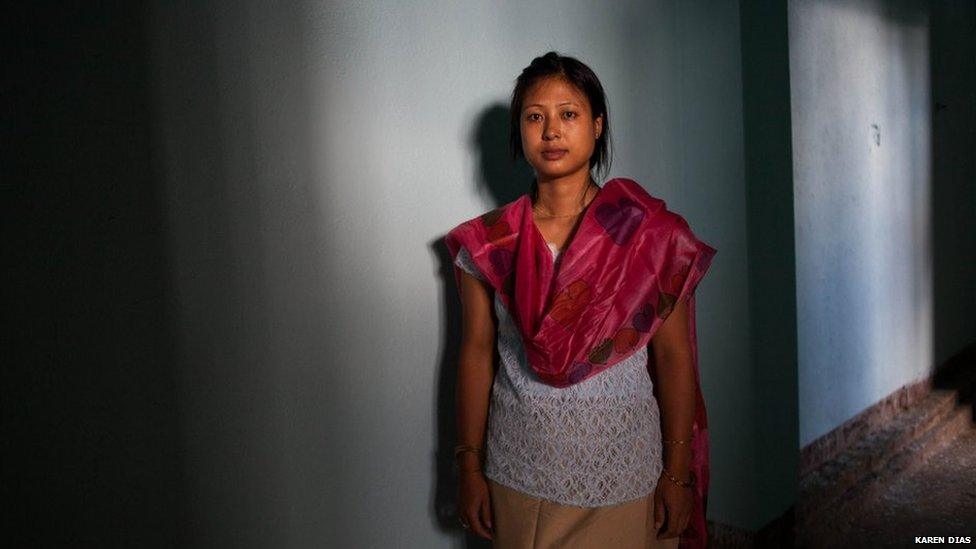
Neena Ningombam's husband Michael Nongmaithem was killed in 2008 by Manipuri police commandos who accused Michael of being a militant and said he was shot while trying to escape. After her husband's death, she joined hands with other widows and founded the Extrajudicial Execution Victims Families Association of Manipur.
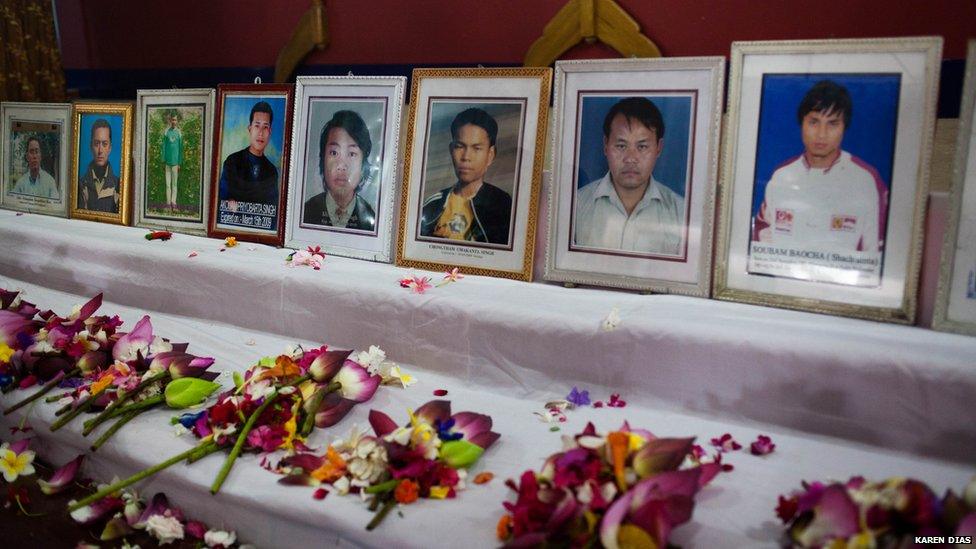
The group has filed a petition in the Supreme Court listing 1,528 cases of alleged extra-judicial killings by security forces in Manipur.
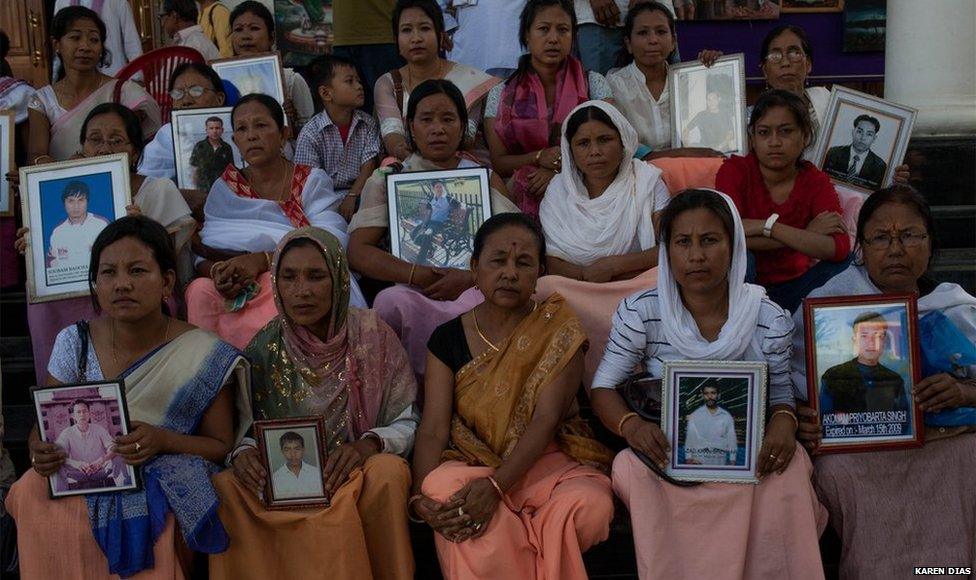
Family members of victims pose for a photograph with portraits of their loved ones who were allegedly killed by the armed forces. The association of victims' families provides support and counsels members in dealing with the loss of their husbands and sons and also, with the stigma of a family member being labelled as an underground militant.